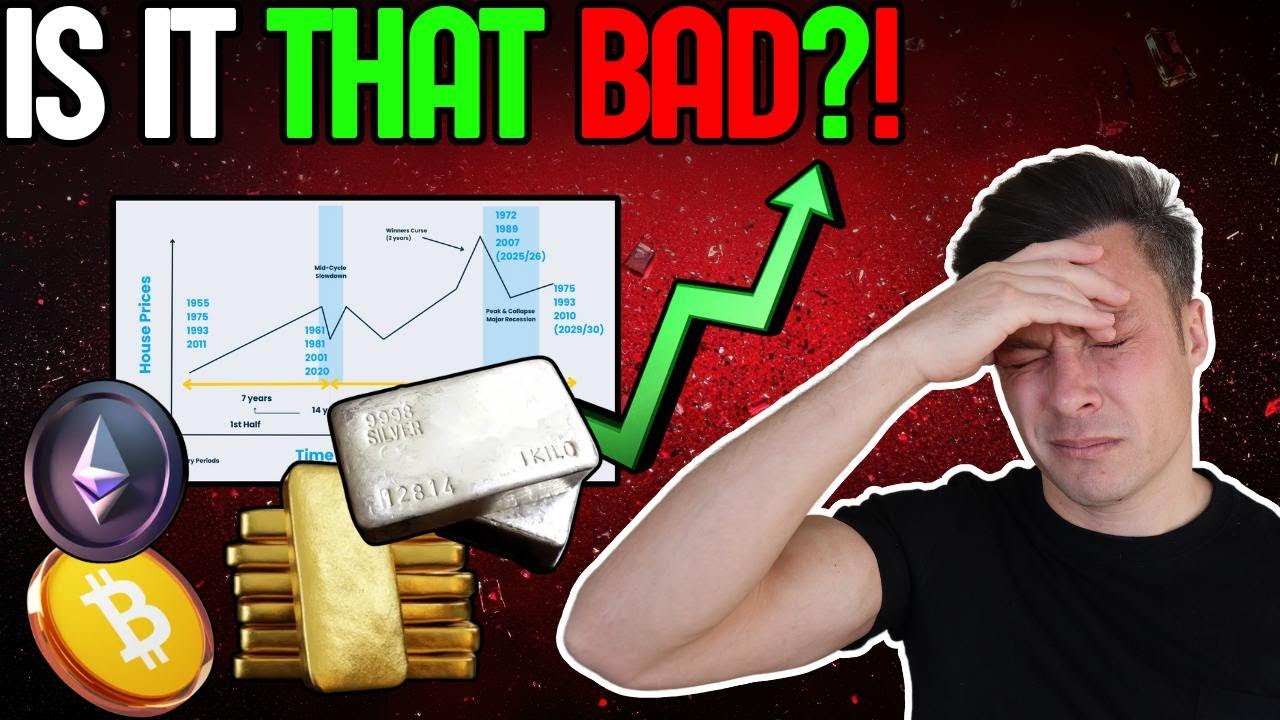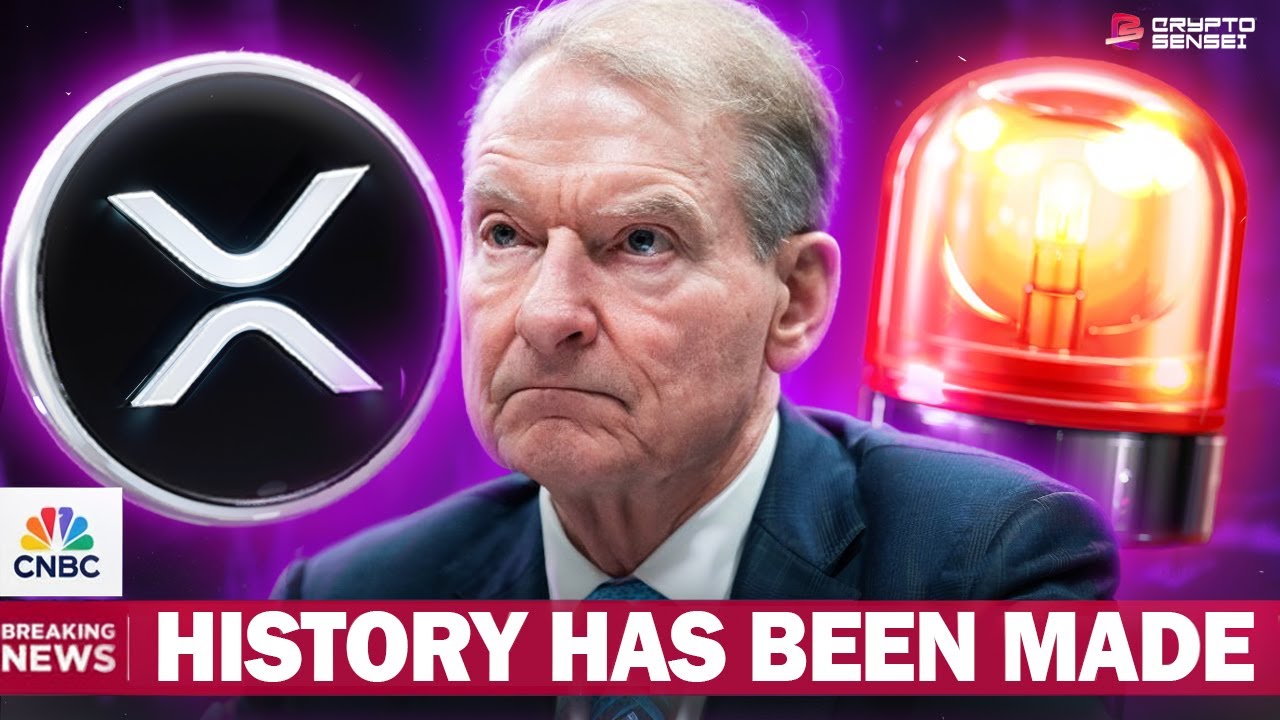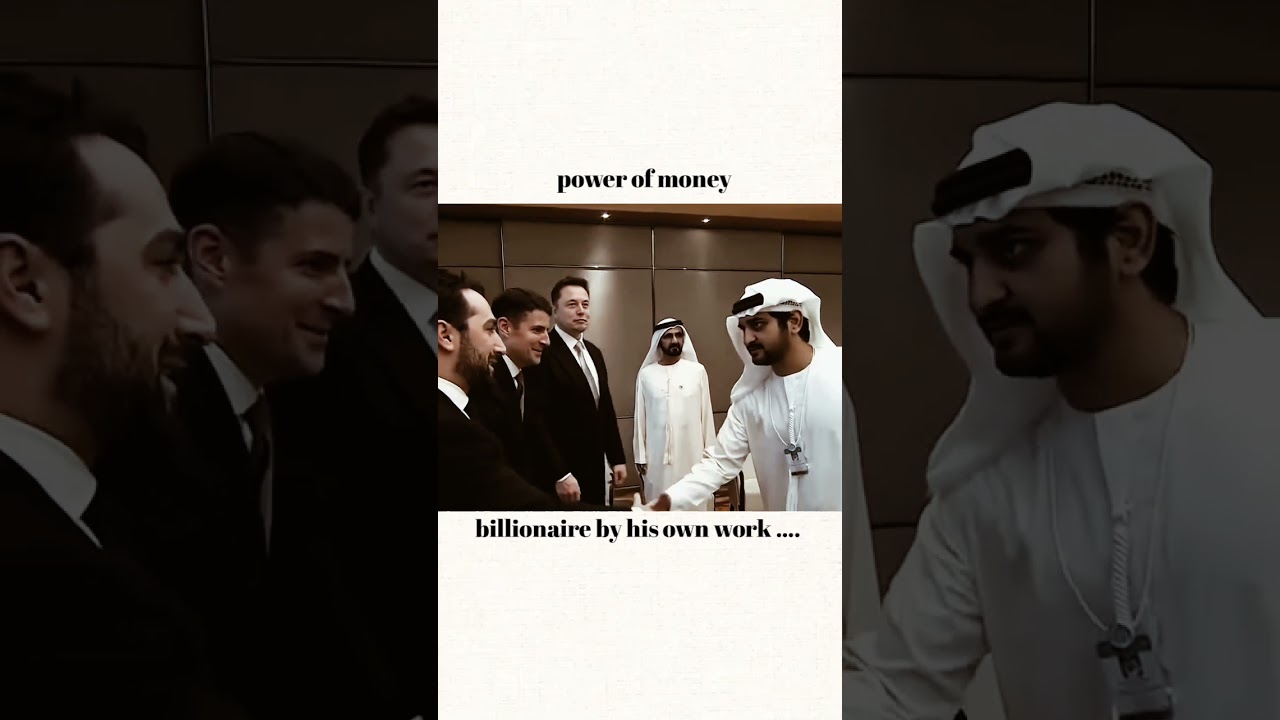Video
Day in the life of a Financial Analyst #dayinthelife #financialanalyst #finance

Video
TRUMP Makes ANNOUNCEMENT! XRP Price WATCH LIVE NOW

💲👇💲
WIN 2,000 XRP Start NOW: https://www.btcc.com/market-promotion/bonus2/kol?name=Oscar&#signUp
join me on BTCC and trade to win
FREE TRADE ALERTS Group https://cryptoramos.com/
✅ SEE my trades, behind the scenes, and Inner Circle Community on my Exclusive Discord Server!!! https://www.patreon.com/oscarmoney
✅$1 CRO Party Telegram: https://t.me/ramoscro
TRUMP Makes ANNOUNCEMENT! XRP Price WATCH LIVE NOW
#crypto #xrp #bitcoin
⛔️Disclaimer⛔️
This video is for educational purposes only. Please do your own research before making any decisions with your money. I will not be held liable for any losses or gains you may experience. I am not your financial or investment advisor. This is completely educational content and should be taken as such – the views expressed in the content are opinions. Nothing on this channel should be taken as a recommendation to buy a particular crypto asset. The information shared on this channel is not indicative of future results. Analyses are not absolute and are prone to change in accordance with present and future market events. Please do all of your own research before you buy any cryptocurrency or any financial product.
Some of the links and other products that appear on this video are from companies which Oscar Ramos will earn an affiliate commission or referral bonus. Oscar is part of an affiliate network and receives compensation for sending traffic to partner sites. The video is accurate as of the posting date but may not be accurate in the future.
I WILL NEVER CONTACT YOU IN ANYWAY (ON ANY PLATFORM). IF YOU GET CONTACTED BY ANYONE CLAIMING TO BE ME, IT IS NOT ME. FOR EXAMPLE, COMMENTS SHOWING WHATSAPP NUMBERS ARE NOT ME. ADDITIONALLY, PEOPLE HAVE THE ABILITY TO CALL YOU USING AI TECHNOLOGY SO IT SOUNDS LIKE ME. THIS AGAIN IS NOT ME. NEVER WILL I CONTACT YOU IN ANY WAY. DO NOT RESPOND OR INTERACT WITH ANYONE ON ANY PLATFORM CLAIMING TO BE ME OR WORKING ON MY BEHALF – THEY ARE SCAMMERS.
Channel Topics:
cro coin, shiba inu, crypto, altcoins, cryptocurrency, algorand, cardano, stocks, trading, investments, finance, price prediction, stock market, crypto market, bitcoin, ethereum, dogecoin, solana, ape nation, oscar ramos, oscar, flexa network, live stream, crypto live, crypto news, crypto crash, crypto exploding, decentraland, metaverse, helium mining, hnt mining, amp token, cronos, crypto.com, tectonic, vvs finance, mm finance, jasmy, pepe coin, breaking crypto news, terra luna classic, 100x crypto.
source
Video
5 Money Habits That Will Change Your Life & Create Financial Freedom

In this episode, you’ll learn the best financial advice you’ll ever hear.
It’s your guide to taking control of your money and learning the rules of how to make it, save it, and spend it better.
Maybe you’re trying to pay down debt.
Maybe you’re wondering how you’ll ever afford a home.
Maybe you’re doing “okay,” but you don’t feel confident about the future, and you don’t know the best place to invest your money.
Or maybe you want to know what really works to save money, make more money, invest money, and how to stop feeling like you’re behind.
This episode will show you exactly what to do.
Today, Mel is joined by David Bach. David is one of the most trusted voices in personal finance for a reason: He teaches the rules of money in a way that makes you feel calm, capable, and in control.
He’s a 10-time New York Times bestselling author behind The Automatic Millionaire, and he’s here to give you the simple money habits and tools that you can apply to your life today.
You’ll learn:
-The rules of money that determine whether you build wealth or stay stuck (no matter what you earn)
-”The 2 escalators to wealth” and how you can get on them
-The money mistake that can wreck your future even if you’ve “done everything right”
-What every couple needs to know about money before it’s too late
-The exact stocks to invest in over the long term
-The exact blueprint of what you should do with your 401k
-The $27.40/day formula that turns into $4.4 million
-Why you can start feeling better about your life before you’re debt-free
-Specific advice for women, including what every widow needs to know
-The easiest ways to take control of your finances with the greatest payoff
As David puts it, either you have a plan for your money, or someone else does.
Your plan starts here.
For more resources related to today’s episode, click here for the podcast episode page: https://www.melrobbins.com/episode/episode-362
Follow The Mel Robbins Podcast on Instagram: https://www.instagram.com/themelrobbinspodcast
I’m just your friend. I am not a licensed therapist, and this podcast is NOT intended as a substitute for the advice of a physician, professional coach, psychotherapist, or other qualified professional. Got it? Good. I’ll see you in the next episode.
In this episode:
00:00 Meet the Guest
07:57 What Does Automatic Economy Mean?
09:37 Financial Planning Basics
15:35 What is a 401(k)?
26:38 How to Save for Retirement Without a 401(k)
33:33 Should You Invest in Individual Stocks?
34:10 How to Start Investing
35:56 Index Funds 101: Best Simple Investing Strategy
37:11 Why “High-Risk Investing” for Young People Backfires
38:21 Compound Interest Explained
41:09 How to Save More Money
47:07 Credit Card Debt Payoff Plan
59:03 Estate Planning Checklist: Will, Passwords, Accounts
—
Follow Mel:
Instagram: https://www.instagram.com/melrobbins/
TikTok: http://tiktok.com/@melrobbins
Facebook: https://www.facebook.com/melrobbins
LinkedIn: https://www.linkedin.com/in/melrobbins
Website: http://melrobbins.com
—
Sign up for Mel’s newsletter: https://melrob.co/sign-up-newsletter
A note from Mel to you, twice a week, sharing simple, practical ways to build the life you want.
—
Subscribe to Mel’s channel here: https://www.youtube.com/melrobbins?sub_confirmation=1
—
Listen to The Mel Robbins Podcast 🎧 New episodes drop every Monday & Thursday!
https://melrob.co/spotify
https://melrob.co/applepodcasts
https://melrob.co/amazonmusic
—
Looking for Mel’s books on Amazon? Find them here:
The Let Them Theory: https://amzn.to/3IQ21Oe
The Let Them Theory Audiobook: https://amzn.to/413SObp
The High 5 Habit: https://amzn.to/3fMvfPQ
The 5 Second Rule: https://amzn.to/4l54fah
source
Video
GOLD & SILVER Not Stopping!!! How Bad Is This For Crypto?!?

Crypto Continues to struggle while gold and silver rip higher and higher. Should we panic about this as crypto holders?
Free Trading Group – Join Now to Unlock Signals 📈 https://THOC.short.gy/TradingCM
Bitunix – Trade to Earn, Exclusive Prize Pool 👏 https://THOC.short.gy/BitunixCM
Join My Inner Circle — the hangout for sharp minds https://whop.com/the-house-of-crypto/
My new Twitter, alpha post daily https://x.com/Peter_thoc
👇👇👇 Unlock Incredible Benefits 👇👇👇
💎 Join My Inner Circle for Exclusive Insights and Community Hivemind💎
✅ Sign-up for only $19.99 / month
👉 https://whop.com/the-house-of-crypto/ 👈
🌔 Join The Moon House for Experts’ Alpha 🌖
✅ Maximize your learning with weekly live calls and Q&A sessions.
👏 https://whop.com/the-moon-house/ 👏
💰No KYC | 400+ altcoin pairs | Fastest new coin listing 💛 WEEX Exchange💰
✅ Deposit, trade and get rewards!
👁️ Referral code: 2dfo
👏 https://THOC.short.gy/WEEX 👏
💰NO KYC & NO VPN + Rewards 💚 Bitunix Exchange💰
✅ Trade anywhere in the world with a discount on your trading fee
👁️ Referral code: rdhq
👏 https://THOC.short.gy/Bitunix 👏
📈 Automate Your Crypto Trades – Copy My Bots! ✅
💰 Sign up & deposit to get up to $1,000 bonus
👏 https://THOC.short.gy/pionexautotrading 👏
🔥 Join the group: Pionex Beta Group – You’re early!
👉 https://thoc.short.gy/Pionex
👀 Watch A Tutorial 👀 https://www.youtube.com/watch?v=_axCeX-qN-M
💰NO KYC | Fast Execution Customer Service Team 🧡 BloFin Exchange💰
✅ 20% Deposit Bonus | Exclusive Airdrop 🎁
👁Referral code: HouseOfCrypto
👏 https://THOC.short.gy/BloFin 👏
💰Fast Listing Coins💙 MEXC (No KYC)💰
✅ Visit MEXC below for exclusive House Of Crypto Signup Bonuses
👁️ Referral code: mexc-12QQEf
👉 https://THOC.short.gy/mexc 👈
💰Kyc to get started 🖤 OKX Exchange💰
✅ Access top crypto markets with great liquidity available.
👁️ Referral code: houseofcrypto
👏 https://THOC.short.gy/OKX 👏
$$$$$$$$$$$$$$$$$$$$$$$$$$$$$$$$$$$$$$$$$$$$$
🔒Secure and easy to use, trusted by millions worldwide.🔒
✅ Get Your Ledger Crypto Wallet with an Exclusive Discount!
***This is important, as crypto hacks occur frequently.***
👏 https://shorturl.at/Nt2WZ 👏
🔑 Secure Your Trading with a VPN 🔑
✅ Get 4 Months Free With Nord VPN!
👏 https://nordvpn.com/houseofcrypto 👏
🔒Protect Your Asset with a Hardware Wallet🔒
✅ Visit D’cent Below For A HUGE Exclusive Discount!
👏 https://tinyurl.com/2z5y9pxd 👏
$$$$$$$$$$$$$$$$$$$$$$$$$$$$$$$$$$$$$$$$$$$$$
🎭 Want To Chat With Other Crypto Enthusiasts? 🎭
✅ Join The FREE Telegram
👉 https://THOC.short.gy/FreeTelegram 👈
📬 Subscribe to our weekly goodies: https://www.thehouseofcrypto.io/subscribe 📬
Gear up for the moon! 🚀 Shop exclusive merch at wenlambo.shop
🔥 Find Everything Here: https://linktr.ee/thehouseofcrypto 🔥
🎭 Follow us here to stay updated every day:
👉 Website: https://www.thehouseofcrypto.io/
👏 X.com: https://x.com/Peter_thoc
🙌 LinkedIn: https://www.linkedin.com/company/thehouseofcrypto/
💪 Instagram: https://www.instagram.com/the.houseofcrypto/
👉Telegram: https://THOC.short.gy/FreeTelegram
***************************************************************************
𝗡𝗢𝗧𝗘: Some of these links are affiliate links, which means I may earn a small commission at no extra cost to you. Our team also works closely with the exchange to bring the community exciting campaigns and incentives.
𝗗𝗜𝗦𝗖𝗟𝗔𝗜𝗠𝗘𝗥: The information contained herein is for informational purposes only and not to be construed as financial, legal or tax advice. The content of this video is solely the opinions of the speaker who is not a licensed financial advisor or registered investment advisor. Trading cryptocurrencies poses considerable risk of loss. The speaker does not guarantee any particular outcome.
source
Video
7 Best Money Management Hacks | Personal Finance Tips | Sonu Sharma

For Corporate Training Workshops, feel free to connect at +91 91513 13101 or visit our website https://sonusharma.in
Buy Our New Book “सफलता के 24 अध्याय” :
Amazon – https://amzn.to/4nwa567
Flipkart – https://fkrt.it/x52vITNNNN
Buy Term Insurance online and Get discount UPTO 10%👇
https://tinyurl.com/2vxytfkt
👉Join Our Whatsapp Channel – https://shorturl.at/xjY87
————————————————————————————————
Money Management Tips | Financial Education in Hindi | Personal Finance | How to Manage Your Money | Financial Freedom
Welcome to the Sonu Sharma Channel, In this video, Mr Sonu Sharma shares 9 straightforward yet effective strategies to enhance your financial management skills. He shares practical tips and hacks to help you take control of your money and achieve your financial goals.
Whether you’re looking to save more, budget effectively, or invest wisely, these simple tips will empower you to make better financial decisions and secure your financial future. Like this video and Hit the Subscribe button if you found this video helpful!
#moneymanagement #money #sonsharma
00:00 – Starting of the video
01:40 – 1st Money Management Hacks
02:55 – 2nd Money Management Hacks
05:28 – 3rd Money Management Hacks
07:15 – 4th Money Management Hacks
08:53 – 5th Money Management Hacks
11:43 – 6th Money Management Hacks
14:17 – 7th Money Management Hacks
SUBSCRIBE Our Other Channels –
📌Sonu Sharma Spiritual – https://www.youtube.com/@SonuSharmaSpiritual
📌Sonu Sharma Show – https://www.youtube.com/@TheSonuSharmaShow
📌Sonu Sharma Motivation – https://www.youtube.com/@SonuSharmaAcademy-u5b
📌Sonu Sharma Shorts – https://www.youtube.com/@sonu_sharmamotivation
About Mr. Sonu Sharma :
Mr. Sonu Sharma, the founder of DYNAMIC INDIA GROUP (INDIA), is a multi-talented individual encompassing the roles of an Author, Educator, Business Consultant, and successful Entrepreneur. With his exceptional speaking skills, he has become a highly sought-after inspirational speaker in India, known for motivating and empowering individuals to realize their true potential. Taking his dynamic messages to a global audience, he has impacted lives across different corners of the world.
With over 21 years of dedicated research and understanding in the Direct Sales Industry, Mr. Sharma has steered numerous organizations toward growth and fulfillment. His dynamic workshops have benefited tens of thousands of people all over INDIA, and his reach has extended to 114 countries, amassing an audience of 900+ million on YouTube in the last four years alone. Notably, his live seminars in India have seen an attendance of over 20 Lac people in recent years.
Mr. Sonu Sharma has achieved sensational success on social media platforms, with over 3 billion views on YouTube and Facebook, and a massive following of 30 million+ loyal supporters. Today, he serves as a consultant for some of the world’s leading corporate houses, further solidifying his impact in the business world.
————————————————————————————————————
Connect with Mr. Sonu Sharma :
🌎 Website: www.sonusharma.in
📸 Instagram: https://www.instagram.com/OfficeSonuSharma/
📱 Facebook: https://www.facebook.com/OfficeSonuSharma/
📩 Telegram: https://t.me/SonuSharmaCommunity
🐦 Twitter: https://twitter.com/OfficeSSharma
🛄 Linked in: https://www.linkedin.com/in/officesonusharma/
📲 Official Android App: https://bit.ly/sonusharma-app
📞 For Business Enquiries: +91 91513 13101
————————————————————————————————————
source
Video
Money | Cover by – Anukriti #anukriti #coversong #money #lisa #blackpink

Video Link – https://youtu.be/OCGuCQ9kzRQ?si=nsrrgl1W3RDaWuuD
source
Video
XRP HISTORY HAS *JUST* BEEN MADE (FUTURE OF FINANCE!)

XRP is back at the center of U.S. crypto policy as the Senate advances the Clarity Act, moving market structure legislation closer to reshaping regulated digital assets.
In this video, I break down how the Clarity Act, SEC involvement, and institutional access through ETFs and retirement accounts connect to XRP and the XRP Ledger. This explains why regulation, liquidity, and infrastructure upgrades continue to position XRP at the core of the next phase of adoption.
Timestamps
00:00 Senate advances the Clarity Act
00:44 What the Senate vote means for crypto regulation
01:23 SEC role in digital asset market structure
02:42 Retirement accounts and institutional crypto access
03:54 Why retirement flows matter for XRP liquidity
04:55 XRP, Bitcoin, and Ethereum ETFs in Japan
05:40 SBI and Franklin Templeton index products
06:25 Fidelity and the digital dollar stablecoin
07:48 XRP Ledger lending protocol and upgrades
08:57 Institutional credit and lending on XRPL
10:18 Legal clarity for XRP under U.S. securities law
11:06 DTCC, SWIFT, and global tokenization momentum
If you follow XRP, institutional crypto adoption, regulated digital assets, and global payments and settlement infrastructure, this breakdown provides important context on where markets are heading next.
🔥Thanks for supporting the channel. Like, share, and comment if this helped clarify what’s really happening.
💳 Uphold – Trade, Spend & Earn XRP Rewards
➖ U.S. Debit Card: https://uphold.sjv.io/559kj9
➖ Uphold Website: https://uphold.sjv.io/dOmGMq
🔸4% on elite card / 2% on virtual card🔸
🛡️Hardware Wallets I Use for XRP
D’CENT Biometric Wallets
– Single Device – 18% Discount ($159 → $129)
Biometric Wallet – Affiliates
– Two-Pack – 31% Discount ($318 → $219)
Biometric Wallet 2X Package – Affiliates
Ledger – Official Store
https://www.ledger.com/crypto-sensei
🔗Contact & Collaborations
– Business: cryptosensei@cryptonairz.com
– Collabs: BD Manager – @Jaalyn_T (Telegram)
– Collab Form: https://forms.gle/E6fskio5BBvd4zVn9
– Social Links: https://linktr.ee/Crypt0Sensei
(YouTube partnerships & brand deals only – no agencies)
📰FREE XRP Newsletter: https://joincryptonairz.com/Newsletter
❗Full Legal & Regulatory Disclaimer
https://docs.google.com/document/d/1T_wTsSkXDZqdgKDUOKfIEKF-a7ur2kX8gw-e3aAq_Q4/edit?usp=sharing
#xrp #ripple #cryptoregulation
source
Video
5 Rules of Money That Help You Build Wealth

👉 Start Investing in Stock Market 📈 Open Free Demat Account: https://upstox.com/open-account/?f=2YPX
*****************************************************************
👉Consultation Booking Registration Form: https://leads.automationmagnet.com/
👉Book 1-on-1 Guidance Call:https://leads.automationmagnet.com/lp-1
*****************************************************************
👉 Best Software for Option Trading: https://nseoptionchain.ltpcalculator.com/signup
*****************************************************************
👉 Order Candlestick Patterns Book on Amazon: https://amzn.to/4fQYU3G
*****************************************************************
#WealthBuilding #PushkarRajThakur #FinancialFreedom
About Pushkar Raj Thakur :
Pushkar Raj Thakur is India’s Leading Educator & Finance Coach.
He Holds 2 Guinness World Records for the Largest Financial Investment Lesson and Largest Social Media Marketing Lesson.
With 14 Million+ Subscribers on Youtube & 2 Million+ Followers Instagram, he is consistently creating content around Financial Education, Stock Market and Current Affairs.
– NISM Certified Research Analyst
– NISM Certified Mutual Fund Distributor
– IRDA Certified
Follow us on:
👉 Telegram: https://t.me/PushkarRajThakurOfficial
👉 Whatsapp: https://bit.ly/PRTWhatsappChannel
👉 Facebook: https://bit.ly/PushkarRajThakurFb
👉 Instagram: https://www.instagram.com/pushkarrajthakur
👉 Youtube: https://youtube.com/@PushkarRajThakurOfficial
👉 Twitter: https://x.com/PushkarRThakur
👉 LinkedIn: https://www.linkedin.com/in/pushkarrajthakur
👉 http://www.pushkarrajthakur.com
To Join Our Courses Call @ 9999 470 710
source
Video
billionaire|| billionaire by his own work | trillions dollar in one frame, Paisa, Elon musk

Power of money|| billionaire by his own work | trillions dollar in one frame, Paisa, Elon musk
The credit goes to respective owners
Don’t give me compywright
DM for removal
Follow me on instagram:-
https://www.instagram.com/hustlevoltt?igsh=MTF6dXU2cXgwYWZ2Zg==
#shorts #viralshorts #trendingshorts #ytshorts
source
Video
MAJOR XRP WARNING!!! IS IT *OVER*??? (US CHOSES BANKS OVER RIPPLE?!?!)

XRP is back at the center of U.S. crypto regulation as Congress advances market structure legislation and Ripple responds to shifting political and banking priorities.
In this video, I break down the recent Clarity Act developments, why the White House appears aligned with major banks, and how XRP, RLUSD, and tokenization are being positioned inside regulated financial infrastructure. This is about policy, institutions and market structure.
Timestamps
00:00 U.S. crypto regulation update
00:45 Brad Garlinghouse on market structure
01:40 Senate Agriculture Committee advances Clarity Act
02:35 Bipartisan tensions and White House stance
03:55 CFTC authority and digital commodities
05:15 SEC coordination and regulatory overlap
06:10 XRP ETF flows and institutional demand
07:45 Tokenization and future financial rails
09:30 Canary Capital on XRP, Hedera, Solana
10:25 RLUSD growth and stablecoin adoption
11:30 Ripple partnerships and settlement flows
13:40 Retirement accounts and crypto access
This video is for viewers focused on institutional crypto adoption, regulated digital assets, and the future of market structure and payments infrastructure.
🔥Thanks for supporting the channel. Like, share, and comment if this helped clarify what’s really happening.
💳 Uphold – Trade, Spend & Earn XRP Rewards
➖ U.S. Debit Card: https://uphold.sjv.io/559kj9
➖ Uphold Website: https://uphold.sjv.io/dOmGMq
🔸4% on elite card / 2% on virtual card🔸
🛡️Hardware Wallets I Use for XRP
D’CENT Biometric Wallets
– Single Device – 18% Discount ($159 → $129)
Biometric Wallet – Affiliates
– Two-Pack – 31% Discount ($318 → $219)
Biometric Wallet 2X Package – Affiliates
Ledger – Official Store
https://www.ledger.com/crypto-sensei
🔗Contact & Collaborations
– Business: cryptosensei@cryptonairz.com
– Collabs: BD Manager – @Jaalyn_T (Telegram)
– Collab Form: https://forms.gle/E6fskio5BBvd4zVn9
– Social Links: https://linktr.ee/Crypt0Sensei
(YouTube partnerships & brand deals only – no agencies)
📰FREE XRP Newsletter: https://joincryptonairz.com/Newsletter
❗Full Legal & Regulatory Disclaimer
https://docs.google.com/document/d/1T_wTsSkXDZqdgKDUOKfIEKF-a7ur2kX8gw-e3aAq_Q4/edit?usp=sharing
#xrp #ripple #clarityact #xrpetf
source
Video
Financial Literacy 101: Save Better, Invest Wiser with Armand Bengco | The Daily Dish

Join us as we welcome Armand Bengco, lead financial literacy advocate of Better Thrive PH, to share practical tips on saving, investing, and building healthier financial habits in 2026.
Learn why the beginning of the year is the best time to reassess your finances, how to manage bonuses, common mistakes to avoid, and how to set realistic financial goals.
Discover the essential rules for first-time investors and why financial literacy is key to long-term security.
Don’t miss this inspiring guide to achieving financial success—tune in now!
📺 Free TV Ch. 31, Cignal Ch. 24, Samsung TV Plus, TCL Smart TVs, Blast TV, AmasianTV
📱 Cignal Play, BNC YouTube and Facebook
Visit our Website: https://bnc.ph
Check out our official social media accounts:
https://www.facebook.com/bncphl
Tweets by bncdotph
https://www.instagram.com/bnc.ph
@bnc.ph
https://www.youtube.com/@bncphl
#bilyonaryonewschannel #bnc #dailydish
Warning: Unauthorized use of any BNC videos without proper approval will lead to legal action to the fullest extent of the law.
source
-

 Crypto World5 days ago
Crypto World5 days agoSmart energy pays enters the US market, targeting scalable financial infrastructure
-
Crypto World6 days ago
Software stocks enter bear market on AI disruption fear with ServiceNow plunging 10%
-

 Politics5 days ago
Politics5 days agoWhy is the NHS registering babies as ‘theybies’?
-

 Crypto World5 days ago
Crypto World5 days agoAdam Back says Liquid BTC is collateralized after dashboard problem
-

 Video1 day ago
Video1 day agoWhen Money Enters #motivation #mindset #selfimprovement
-

 Tech3 hours ago
Tech3 hours agoWikipedia volunteers spent years cataloging AI tells. Now there’s a plugin to avoid them.
-

 NewsBeat5 days ago
NewsBeat5 days agoDonald Trump Criticises Keir Starmer Over China Discussions
-

 Politics2 days ago
Politics2 days agoSky News Presenter Criticises Lord Mandelson As Greedy And Duplicitous
-

 Crypto World4 days ago
Crypto World4 days agoU.S. government enters partial shutdown, here’s how it impacts bitcoin and ether
-

 Sports4 days ago
Sports4 days agoSinner battles Australian Open heat to enter last 16, injured Osaka pulls out
-

 Fashion5 days ago
Fashion5 days agoWeekend Open Thread – Corporette.com
-

 Crypto World4 days ago
Crypto World4 days agoBitcoin Drops Below $80K, But New Buyers are Entering the Market
-

 Crypto World2 days ago
Crypto World2 days agoMarket Analysis: GBP/USD Retreats From Highs As EUR/GBP Enters Holding Pattern
-

 Crypto World5 days ago
Crypto World5 days agoKuCoin CEO on MiCA, Europe entering new era of compliance
-
Business5 days ago
Entergy declares quarterly dividend of $0.64 per share
-

 Sports2 days ago
Sports2 days agoShannon Birchard enters Canadian curling history with sixth Scotties title
-

 NewsBeat1 day ago
NewsBeat1 day agoUS-brokered Russia-Ukraine talks are resuming this week
-

 NewsBeat2 days ago
NewsBeat2 days agoGAME to close all standalone stores in the UK after it enters administration
-

 Crypto World12 hours ago
Crypto World12 hours agoRussia’s Largest Bitcoin Miner BitRiver Enters Bankruptcy Proceedings: Report
-

 Crypto World5 days ago
Crypto World5 days agoWhy AI Agents Will Replace DeFi Dashboards






